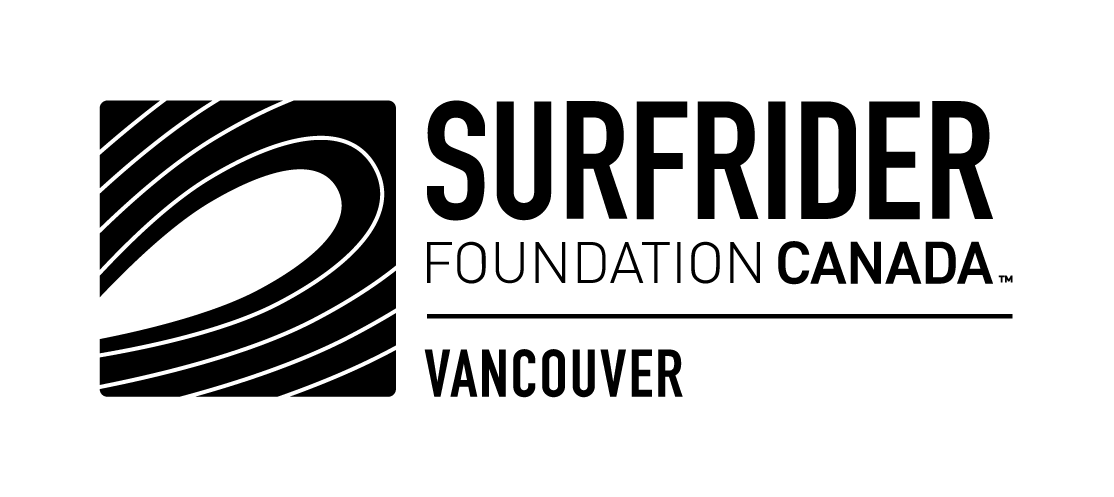
Oil and water don’t mix
Expanded oil shipping in Burrard Inlet and the Salish Sea threatens endangered species, greatly increases the risk of oil spills, and degrades water quality.
Call on your elected representatives to establish new Marine Protected Areas
Surfrider opposes expanded oil shipping in vancouver’s waters
The Trans Mountain pipeline expansion is now delivering heavy crude oil to the Westridge Marine Terminal in Burnaby. It nearly triples the capacity of the pipeline delivering Alberta tar sands oil to the ocean for export abroad.
The pipeline expansion enables a seven-fold increase in oil tanker traffic through Burrard Inlet and the Salish Sea. This will have detrimental impacts to the coastline, marine ecosystems and species, and will increase the risk of an oil spill in the waters surrounding Vancouver.
Surfrider Vancouver opposes the expansion of the Trans Mountain pipeline and accompanying government investments in fossil fuel infrastructure. This issue is at the nexus of our commitments to ocean protection, clean water and coastal preservation.
We call on Premier David Eby and the Province of British Columbia to establish new Marine Protected Areas in the Salish Sea to provide habitat for at-risk chinook salmon and the Southern Resident Killer Whales that depend on them.
73 orcas in the way of 400 tankers
Oil tankers outnumber Southern Resident Killer Whales 5 to 1 after the pipeline expansion
Marine noise from tankers has profound negative effects on orcas, interfering with echolocation and communication during hunting
An oil spill in the Salish Sea represents an existential threat to the Southern Resident pods
Increased industrial activity including oil shipping has detrimental effects on chinook salmon, a primary food source for Southern Residents
Total abundance of Chinook salmon in the Salish Sea has been decreasing since 1984 (Pacific Salmon Commission, 2019)
Monthly increase in oil tanker capacity from 5 to 34 tankers at Westridge Marine Terminal (Five reasons that expanding the Trans Mountain oil pipeline is still a colossal mistake, Sightline Institute)
Raincoast used Kinder Morgan’s modelled probabilities of where oil would go within 15 days of a tanker accident at Turn Point in northern Haro Strait to produce the shaded black to grey areas, overlaid with orca habitat in red. (Oil tankers: a killer for whales, Raincoast)
Southern Resident Killer Whale population decline since 1990 (Oceana)
BC Communities & FIrst Nations Against the pipeline expansion
“We believe that Canada should follow their own laws when reviewing projects such as TMX. Because of this decision, Canada’s failure to apply the Canadian Environmental Assessment Act and the Species at Risk Act will put the endangered Southern Resident Killer Whales at greater risk of extinction.”
Chief Leah George-Wilson, Tsleil-Waututh Nation
“The City of Burnaby has officially opposed this project since it was first proposed, because it offers no benefits to the City and presents many significant safety risks and will cause irreparable damage to Burnaby’s environment.”
City of Burnaby
“The Trans Mountain pipeline expansion project significantly impacts British Columbia – with a disproportionate impact on B.C.’s marine coastal environment and Indigenous peoples.”
David Eby, Premier of British Columbia
“TMX would triple the capacity of diluted bitumen and is expected to increase the number of tankers passing through Squamish Nation Territory from five to 34 each month. The tankers pass by three Squamish Nation communities on the Burrard Inlet and a single significant marine spill could be catastrophic for those communities, the economy, and the Squamish people.”
Khelsilem, Councillor and Spokesperson, Squamish Nation
“The City of New Westminster has not been satisfied that TMX sufficiently addresses the imminent and long-term risks to the Brunette River, its unique habitat, and species at risk, including recently-rejuvenated local populations of chum and coho salmon.”
City of New Westminster
federal Government & Alberta for new fossil fuel infrastruture
“It’s great for the people of Alberta that own the resource in the ground. We will have the opportunity of saying to the world, ‘See, we can do this.’ We can build capacity to tidewater, and we can feed the insatiable thirst of Asia and other areas of the globe with our products, our natural resources."
Brian Jean, Minister of Energy for Alberta
“We approved the Trans Mountain Expansion (TMX) project because it is in the Canadian public interest. Canadians understand that the environment and the economy go hand in hand. That is what our decision was about.”
Government of canada
This is about prioritizing the economic benefit of a few over long-term environmental consequences for endangered species and communities that depend on healthy ecosystems.

“All recent studies of the resident pods have identified marine noise around the Strait of Georgia and Juan de Fuca Strait as one of the stressors threatening their survival, in addition to lack of Chinook salmon — the whales’ favourite prey — contaminants accumulating in their blubber and degradation of their critical habitat.
Now, with federal approval of the Kinder Morgan’s Trans Mountain Pipeline expansion, the situation for the whales is about to get much worse and experts are predicting that the fragile population, which spends about six months a year in the Salish Sea, will not be able to survive the onslaught of tankers.
It’s oil or orcas — take your pick…”
— Southern Resident Killer Whales Unlikely to Survive Increase in Oil Tanker Traffic, Say Experts





